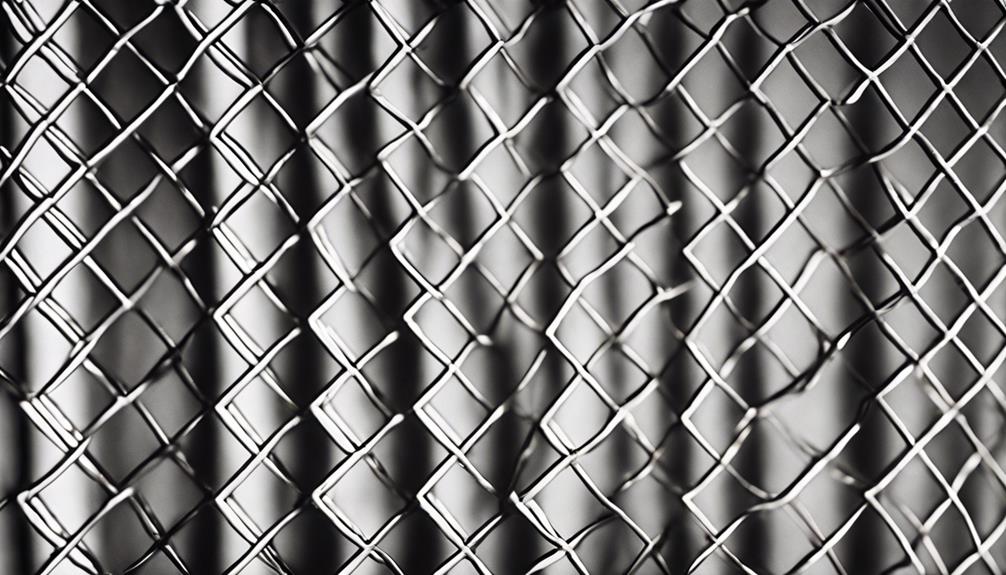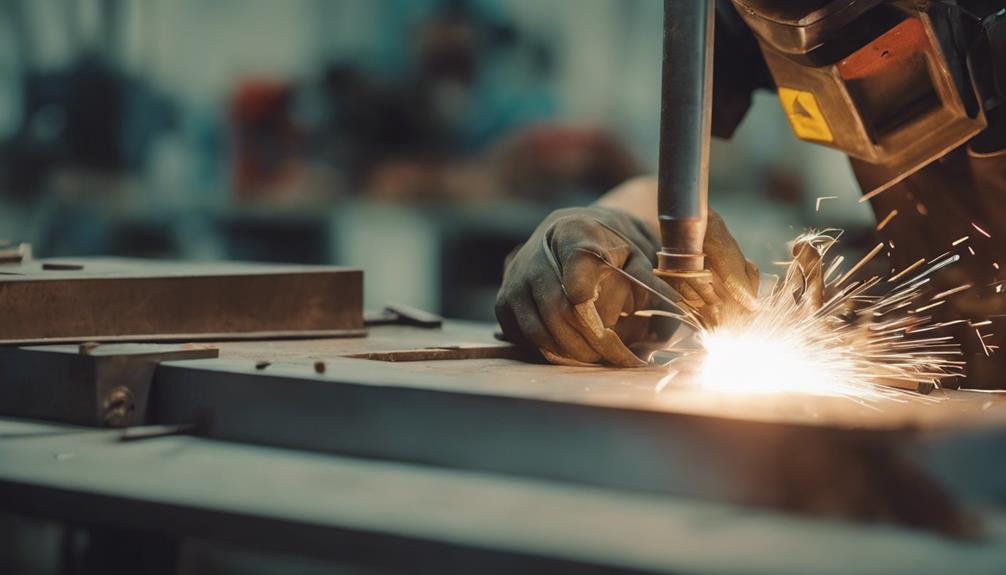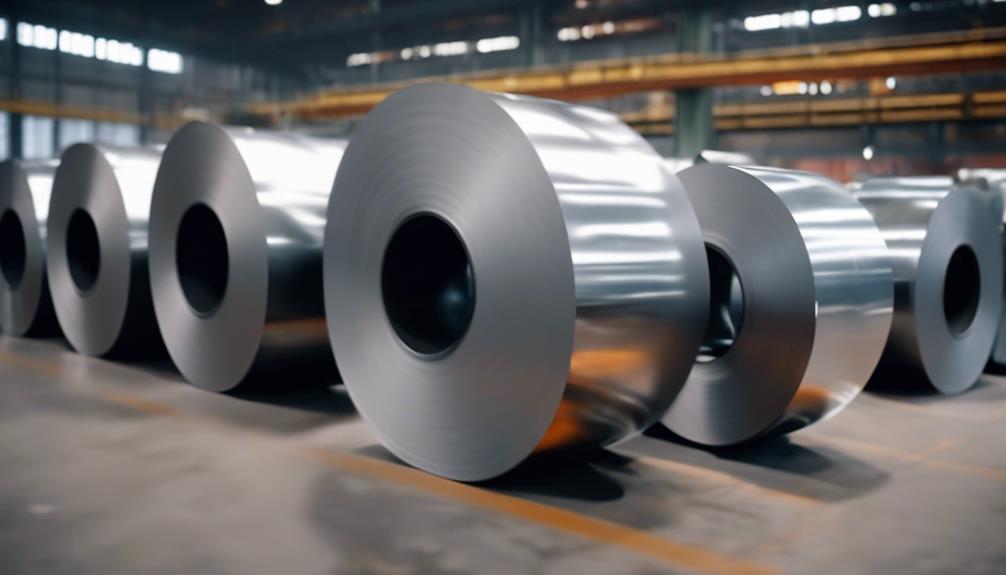Steel mesh, such as welded or woven steel, is celebrated for its exceptional strength, resilience, and corrosion resistance, especially in stainless steel variations. This kind of mesh offers additional stability and protection with its interconnected grid pattern, making it perfect for fencing, machinery guards, and various enclosures. Other advantages include customization options for design versatility. Explore the different types, applications, choosing guidelines, and maintenance tips further to gain thorough insights.
Key Takeaways
- Unparalleled strength and durability in steel mesh
- Versatile applications in security, fencing, and industrial settings
- Customizable options for tailored design and function
- Consider material type and mesh construction for specific needs
- Regular maintenance to prevent corrosion and ensure longevity
Benefits of Steel Mesh
Steel mesh guarantees unparalleled strength and durability, making it an ideal choice for a wide range of applications. One of the key benefits of steel mesh, especially stainless steel mesh, is its exceptional corrosion resistance. This makes it perfect for outdoor use or in environments where exposure to moisture or chemicals is a concern. Welded mesh, a common type of steel mesh, provides added stability and security due to its interconnected grid pattern. The robust construction of steel mesh guarantees excellent protection and security, making it a popular choice for fencing, machinery guards, and enclosures. Its customizable nature allows for versatility in design and application, catering to specific project needs with different sizes and weights available.
Types of Steel Mesh
Welded Steel Mesh, created through the process of welding steel wires at intersections, offers exceptional strength and versatility for a wide range of applications. On the other hand, Woven Steel Mesh is crafted by weaving wires alternately, providing stability, rigidity, and aesthetic appeal. Both Welded and Woven Steel Mesh come in various wire diameters and opening sizes to suit different needs. Additionally, Stainless Steel Wire Mesh is known for its corrosion resistance and durability, making it suitable for applications requiring hygiene or exposure to harsh environments. The opening sizes and wire diameters of these meshes can be tailored to meet specific requirements, offering flexibility in design and function.
Applications of Steel Mesh
In various construction projects, the application of steel mesh plays a vital role in enhancing structural stability and preventing cracking in concrete slabs. Steel mesh, available in welded wire or stainless steel options, is also widely used in security applications like fencing, cages, and machinery guards due to its strength and durability. In industrial settings, steel mesh is utilized for particle separation, water filtration, and food processing. Galvanized steel mesh is commonly chosen for its corrosion resistance, making it suitable for outdoor applications. Mesh sizes vary, with standard options including 4 ft x 10 ft or 5 ft x 150 ft sheets or rolls, providing convenience and adaptability in various projects. The versatility of steel mesh allows for custom cutting, welding, and forming to meet specific requirements.
Choosing the Right Steel Mesh
Consider the intended application when selecting the most suitable type of steel mesh for best performance and durability. When choosing a wire mesh product, decide between woven or welded steel mesh based on the desired strength and appearance. Additionally, the material types play an important role in determining the mesh's suitability for the project. Opt for bare carbon steel for general industrial applications or T-304 stainless steel for enhanced corrosion resistance. Pay close attention to specifications such as wire diameter and opening size to make sure they align with the project requirements. Evaluating workability is also essential to guarantee the steel mesh can be easily manipulated using standard equipment. Explore both standard and custom sizes to find the best fit for your specific needs.
Maintenance Tips for Steel Mesh
To guarantee the longevity and peak performance of steel mesh, regular maintenance practices are vital. Inspect woven steel mesh of various sizes for wear, corrosion, or damage frequently. Clean PVC coated or Carbon Steel mesh regularly using a mild detergent and water to remove dirt and contaminants. Apply a rust-resistant coating or paint to prevent corrosion and maintain structural integrity. Avoid harsh chemicals and abrasive materials during maintenance to prevent surface damage. Properly store steel mesh in a dry, covered area when not in use to avoid exposure to moisture and environmental elements. Following these maintenance tips will secure the durability and effectiveness of your steel mesh over time.
Frequently Asked Questions
What Is Steel Mesh Used For?
In construction, steel mesh is utilized for reinforcing concrete slabs to enhance structural integrity. Its strength and durability make it ideal for security fencing, machinery guards, and other applications. Steel mesh offers reliability and versatility in heavy-duty particle separation, water filtration, and food processing industries.
What Can I Use Instead of Metal Mesh?
When considering alternatives to metal mesh, options like plastic mesh, fiberglass mesh, wire cloth, expanded metal mesh, and perforated metal sheets can offer varying degrees of durability, resistance to chemicals, flexibility, strength, and specialized airflow or light filtration properties.
Is Wire Mesh as Strong as Rebar?
Wire mesh is not as strong as rebar with respect to tensile strength, but it still provides reinforcement in concrete. Factors like wire diameter, mesh size, and installation method influence its strength. Wire mesh is commonly used in lighter applications where minimal reinforcement is needed.
Is Rebar or Wire Mesh Cheaper?
When evaluating the costs of rebar and wire mesh, it is crucial to contemplate factors like material prices, installation expenses, and project requirements. Analyzing these aspects will help determine which option presents a more cost-effective solution for your specific project needs.










